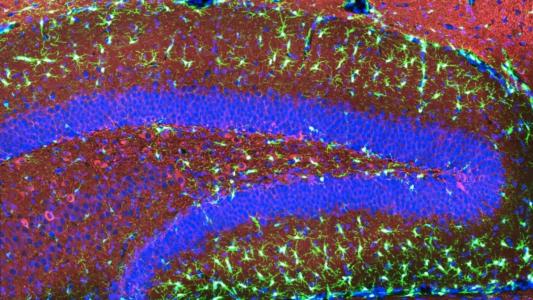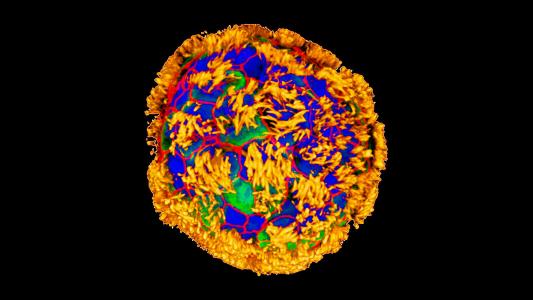Neuroscience
How a mutation in microglia elevates Alzheimer’s risk
A study finds that microglia with mutant TREM2 protein reduce brain circuit connections, promote inflammation, and contribute to Alzheimer’s.
Brain stimulation could boost learning
Noninvasive brain stimulation while a person learns a new task in VR can improve their performance in the “real world.”
How does Alzheimer’s disease erode memory? New findings on risk gene offer insights
The strongest genetic predictor of Alzheimer's disease is a variant of a gene called apolipoprotein E. Researchers are discovering why.
Your brain “wakes up” more than 100 times each night. That’s normal — and maybe good
Research suggests that brief, repeated “wake-ups” during sleep are completely normal, and may actually bode well for one’s memory.
Chemobrain is real. Here’s what to expect after cancer treatment.
Chemobrain, or chemofog, can significantly affect cancer survivors' quality of life with its social, psychological, and economic impacts.
Deep neural networks show promise as models of human hearing
In the largest study yet of deep neural networks trained to perform auditory tasks, researchers found surprising similarities to human hearing.
How music therapy benefits the autistic brain
While the benefits of music therapy are well known, more in-depth research explores how music benefits children with autism.
Your “circadian rhythm peak” can affect your mental performance
What’s your chronotype? Knowing whether you’re a night owl or an early bird could help you do better on tests and even avoid scams.
Tiny biobots surprise their creators by healing wound
Tiny “biobots” made from human windpipe cells, amazingly, helped damaged neural tissue to repair itself in a new study.
These 2 types of exercise can improve brain health in your 80s, new study finds
Older people who regularly engage in aerobics and strength training perform better on cognitive tests.









